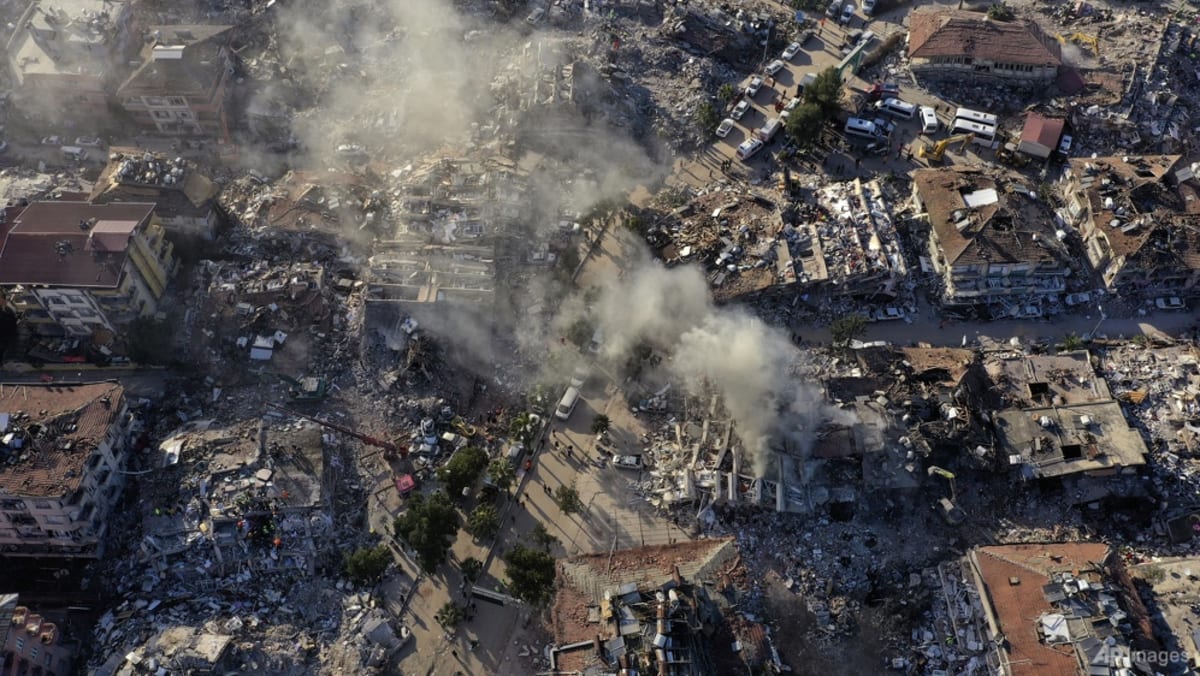Türkiye’s lax policing of building codes flagged before quake
In a country crisscrossed by geological fault lines, people are on edge about when and where the next earthquake might hit – particularly in Istanbul, a city of more than 15 million that is vulnerable to quakes.
Since the disaster, Erdogan’s minister of justice said it will investigate the destroyed buildings. “Those who have been negligent, at fault and responsible for the destruction following the earthquake will answer to justice,” Bekir Bozdag said Thursday.
But several experts said any serious investigation into the root of weak enforcement of building codes must include a hard look at the policies of Erdogan, as well as regional and local officials, who oversaw – and promoted – a construction boom that helped drive economic growth.
Shortly before Türkiye’s last presidential and parliamentary election in 2018, the government unveiled a sweeping program to grant amnesty to companies and individuals responsible for certain violations of the country’s building codes. By paying a fine, violators could avoid having to bring their buildings up to code. Such amnesties have been used by previous governments ahead of elections as well.
As part of that amnesty program, the government agency responsible for enforcing building codes acknowledged that more than half of all buildings in Türkiye – accounting for some 13 million apartments – were not in compliance with current standards.
The types of violations cited in that report by the Ministry of Environment and Urbanization were wide-ranging, including homes built without permits, buildings that added extra floors or expanded balconies without authorisation, and the existence of so-called squatter homes inhabited by low-income families.
The report did not specify how many buildings were in violation of codes related to earthquake-proofing or basic structural integrity, but the reality was clear.
“Construction amnesty doesn’t mean the building is sturdy,” the current head of the Ministry of Environment and Urbanization, Murat Kurum, said in 2019.
In 2021, the Chamber of Geological Engineers of Türkiye published a series of reports raising red flags about existing buildings and new construction taking place in areas leveled by this week’s quakes, including Kahramanmaras, Hatay and Osmaniye. The Chamber urged the government to conduct studies to ensure that buildings were up to code and built on safe locations.
A year earlier, the Chamber issued a report that directly called out policies of “slum amnesty, construction amnesty” as dangerous and warned that “indifference to disaster safety culture” would lead to preventable deaths.
Since 1999, when two powerful earthquakes hit northwest Türkiye, near Istanbul – the stronger one killing some 18,000 people – building codes have been tightened and a process of urban renewal has been underway.
But the upgrades aren’t happening fast enough, especially in poorer cities.
Builders commonly use lower quality materials, hire fewer professionals to oversee projects and don’t adhere to various regulations as a way of keeping costs down, according to Muhcu, president of the country’s Chamber of Architects.
He said the Turkish government’s so-called “construction peace” introduced before the 2018 general elections as a way to secure votes has, in effect, legalised unsafe buildings.
“We are paying for it with thousands of deaths, the destruction of thousands of buildings, economic losses,” Muhcu said.
For all the latest world News Click Here

